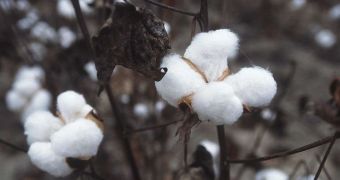University of Warwick investigators recently conducted an important investigation into the history of domesticated plants, when they analyzed 1,600-year-old Egyptian cotton samples, harvested from the very banks of the Nile River.
Plant domestication has a relatively brief history on our planet, since our ancestors only settled down and started agriculture a few millennia ago. But experts say that learning more about how this originally happened could contribute to improving our understanding of plant evolution.
When modern humans began using plants around the year, in permanent crops, a few important changes occurred in these organisms, similarly to how wolves evolved into dogs once they accepted living together with our species.
The mutually-beneficial arrangement favored the development of dogs capable of understanding human communication signals, and that shed much of their innate aggression in favor of cooperation.
In the same manner, the UK researchers believe that analyzing the old cotton samples could reveal much about the dynamics of agriculture in its earliest days. At the same time, the data could be used to create organisms that can withstand the rigors of climate change and global warming.
Modern-day plants are also faced with the prospect of water scarcity. This phenomenon is brought on by shifting precipitation patterns, and by the increased frequency of droughts and floods.
In addition to these potential benefits, the new research also validated high throughput DNA sequencing technologies for applications in analyzing old plant genomes. This means that similar approaches may be used in the future, on other plant species as well.
“We think of evolution as a very slow process, but as we analyse more genome information we can see that there's been a huge amount of large-scale proactive change during recent history,” explains Dr. Robin Allaby, who is based at the UW School of Life Sciences.
“Our results for the cotton from Egypt indicate that there has been the potential for more adaptive evolution going on in domesticated plant species than was appreciated up until now,” the expert adds.
“This insight into how domesticated crops evolved when faced with environmental stress is of value for modern agriculture in the face of current challenges like climate change and water scarcity,” Allaby concludes, quoted by Science Daily.

 14 DAY TRIAL //
14 DAY TRIAL //